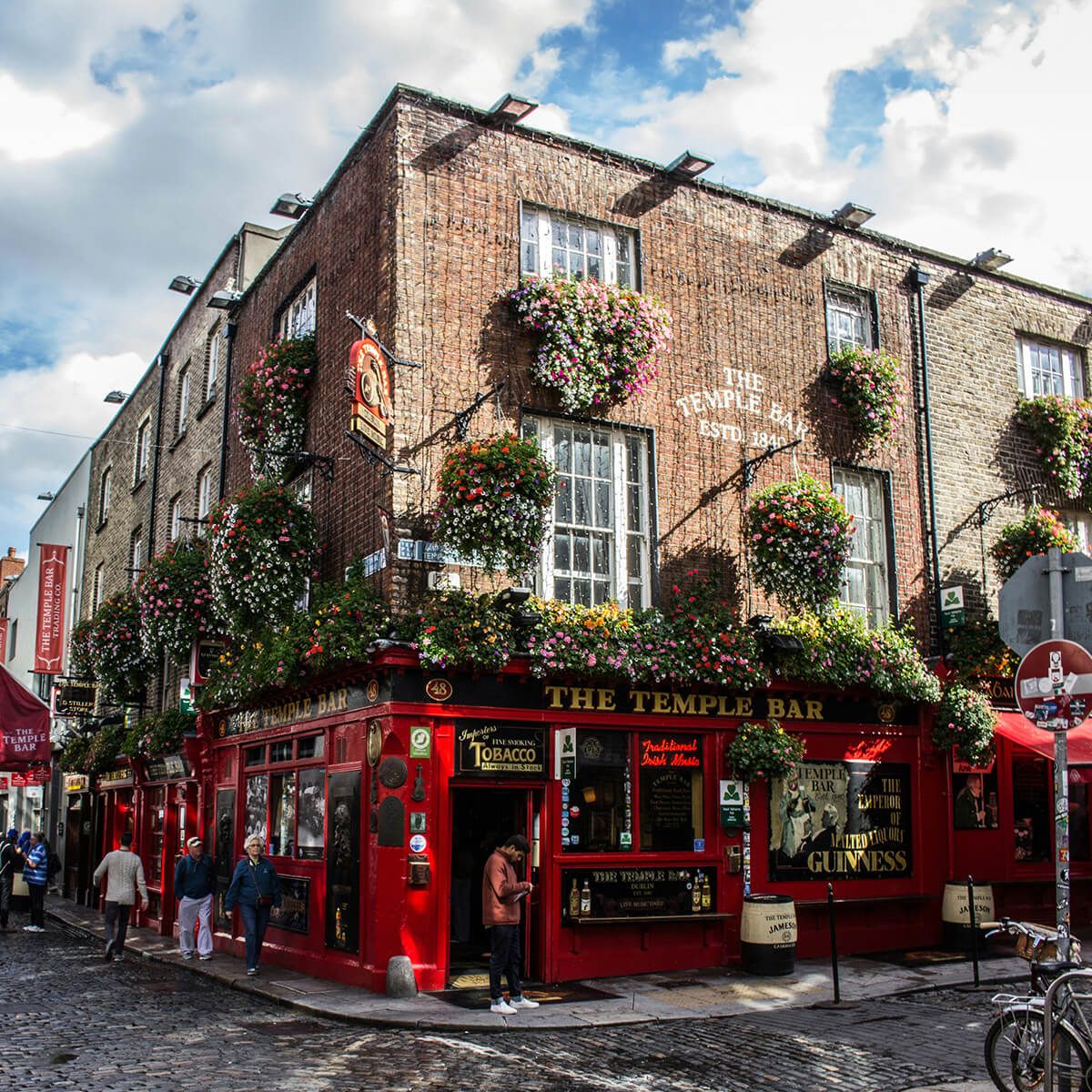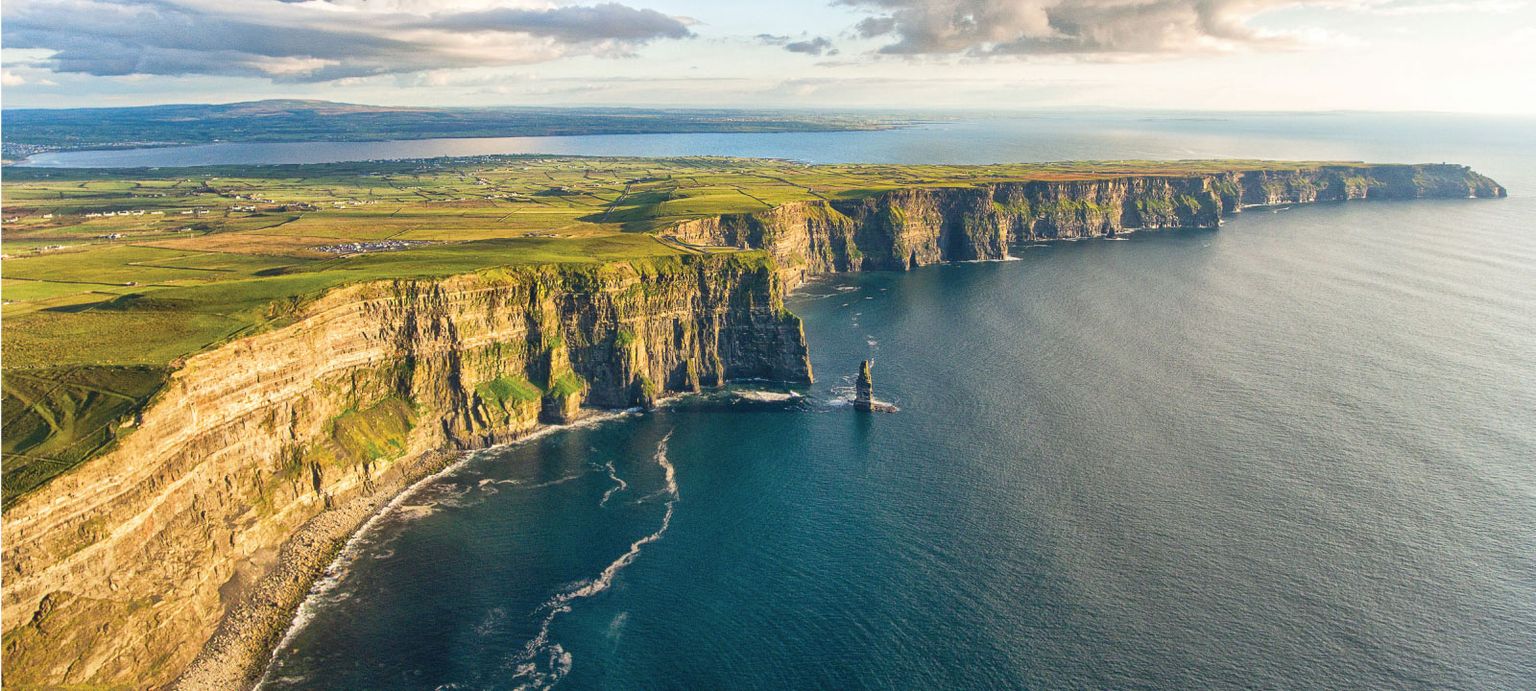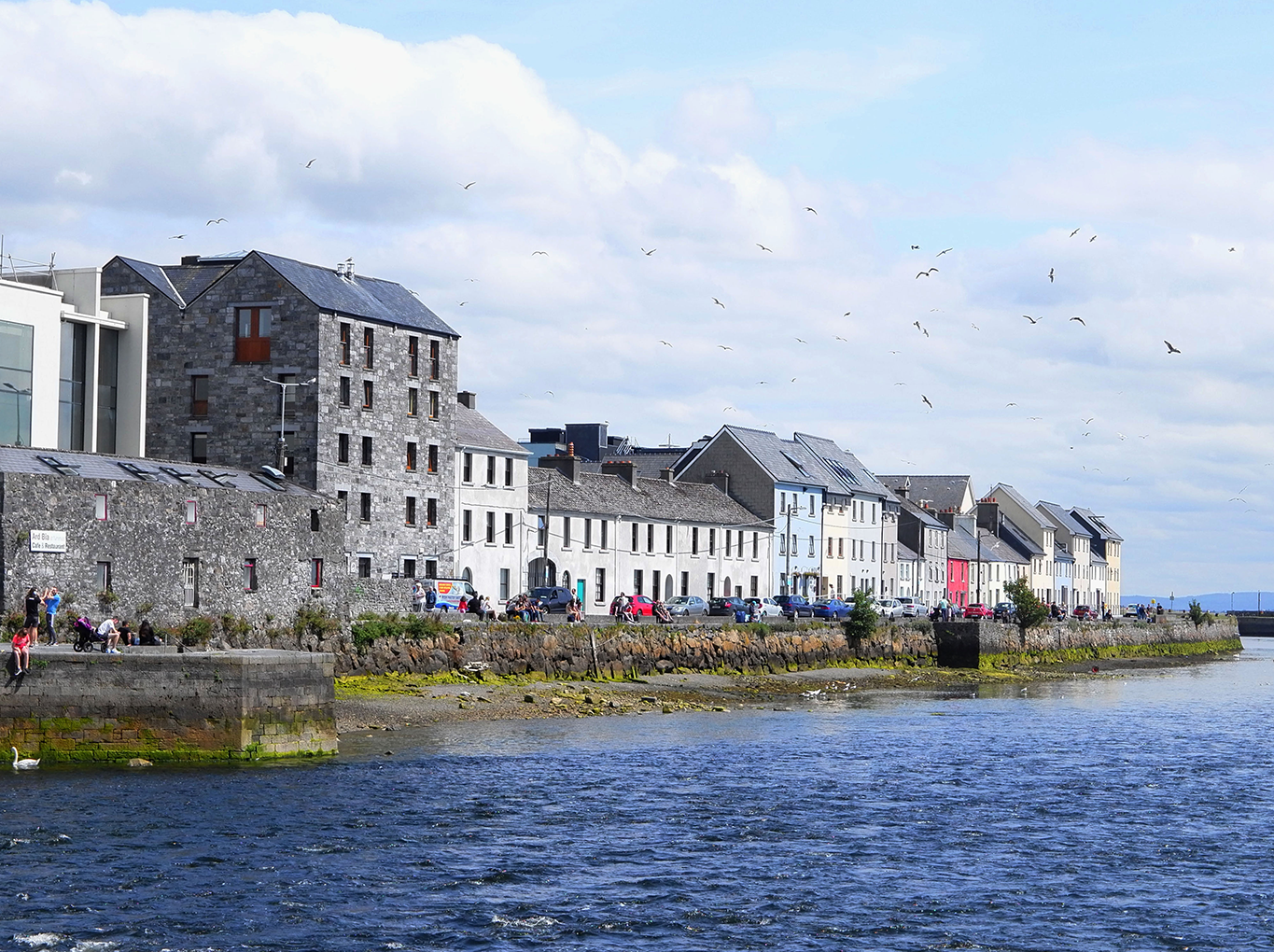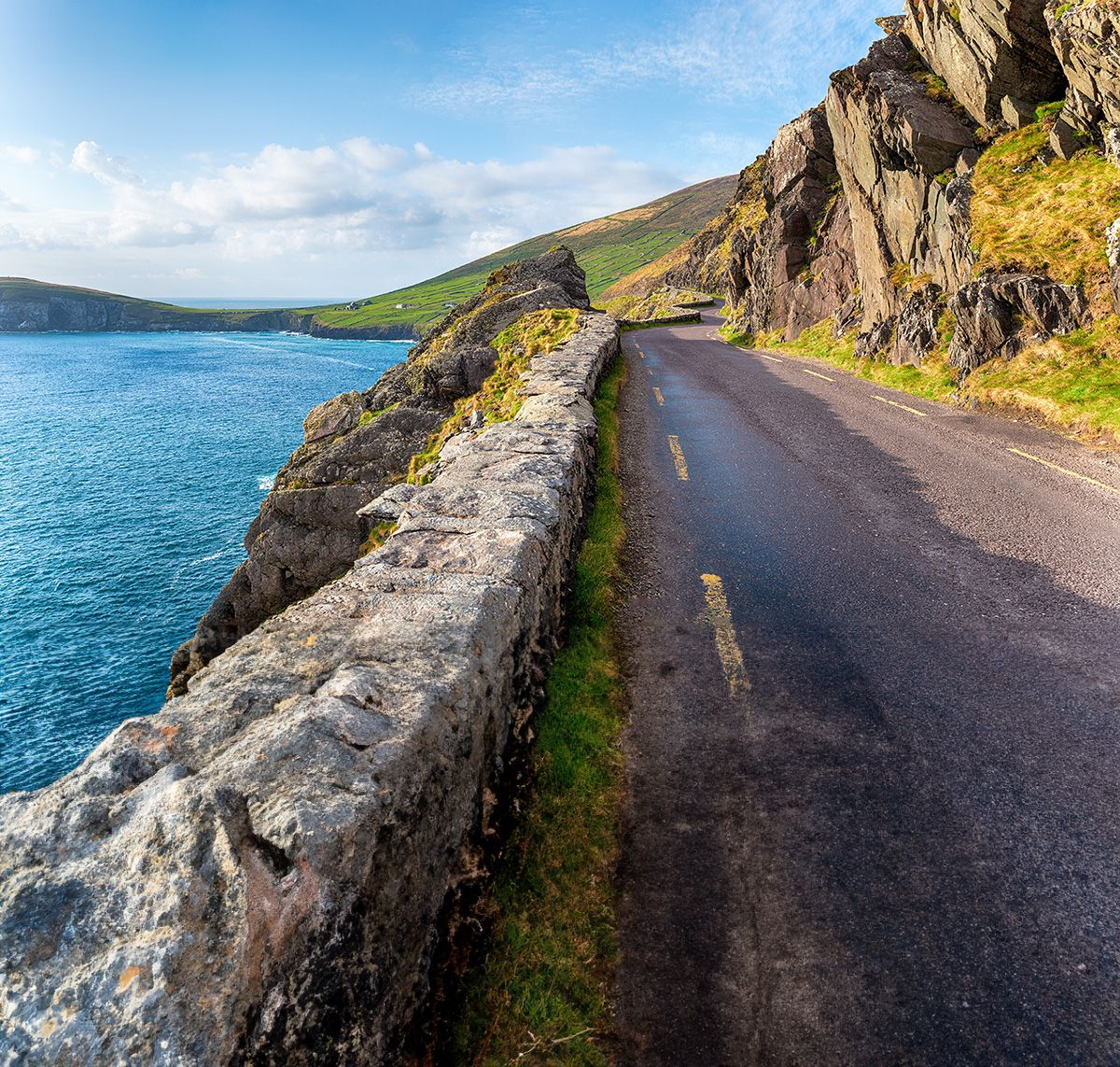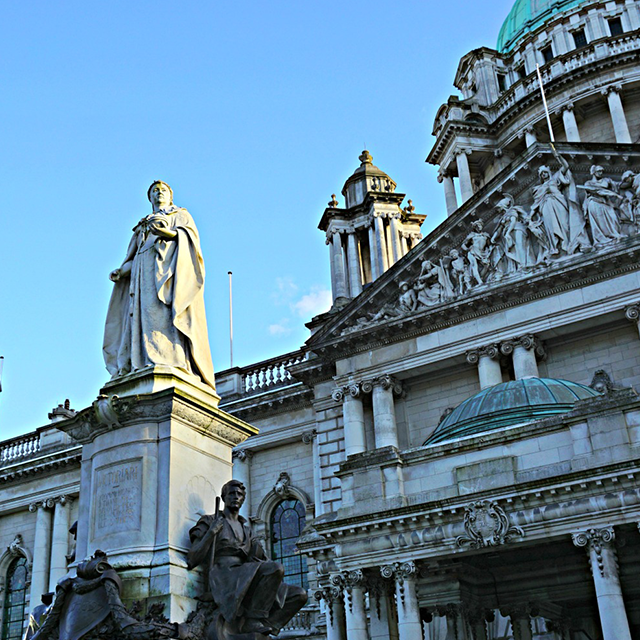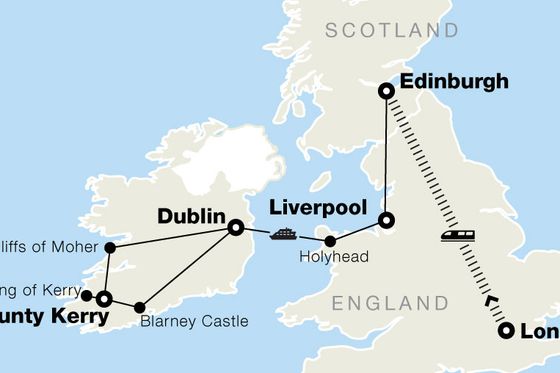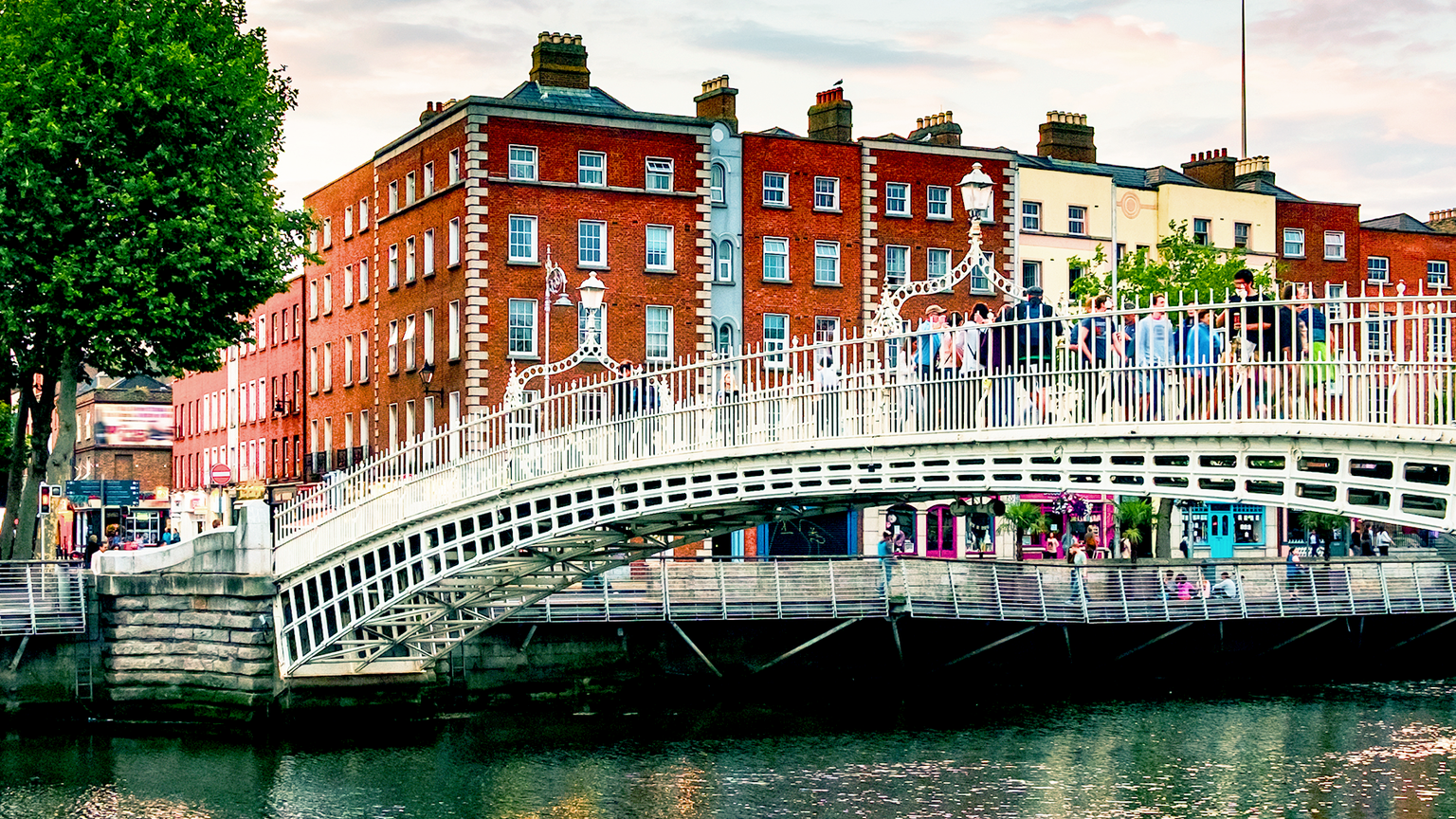Ireland tours
Kiss the Blarney Stone, feel the wind whip at your face on the Cliffs of Moher, sip a pint of Guinness in a Dublin pub. Ireland has a way of making you feel lucky to be there.


What to know before you go
POPULATION
Only 5 million residents call Ireland home—but an estimated 80 million people of Irish descent span the globe.
CAPITAL
Dublin boasts Europe’s largest city green space, the 1,750-acre Phoenix Park, as well as 750 pubs to tuck into.
CULTURAL QUICK TAKE
The Irish weave their tales through literature, music, and dance, and share them with visitors through unmatched hospitality and that famous craic (pronounced “crack”)—the locals’ gift of good banter.
WHAT TO GO FOR
Ireland offers a gentle introduction to international travel with an English-speaking population and a welcoming atmosphere. And that’s before the otherworldly scenery you’ll relish.
UNIQUE EXPERIENCES ON TOUR
Sip Guinness and whiskey right from the source, forage for seaweed, walk dizzying cliffs, or join a shepherding demonstration to experience the Emerald Isle’s kaleidoscopic culture far beyond the green.
)
Explore Ireland from coast to coast on our Grand Tour
Sheep-dotted green vistas and untamed terrain coexist with spirited, contemporary cities on one of our most popular tours.
More unforgettable ways to experience Ireland
Stay a week, let it linger, embark on a culinary adventure, or boldly take on Ireland solo (but not alone).

A Week in Ireland
Meet the emerald heart of Irish culture in Dublin, Cork, and Galway.
Explore the 8-day itinerary)
Traditions of the Emerald Isle
Revel in the verdant, patchwork quilt of the Ring of Kerry.
Explore the 11-day itinerary)
An Irish feast of flavors
Sip, savor, toast, nibble, and devour your way through Ireland.
Explore the 12-day itinerary
Ireland for Solo Travelers
Dive into Irish culture with new friends by your side.
Explore the 8-day itineraryAnnual festivals and Irish traditions
Special occasions call for special departures. Join us for pints and parades, or a spooky Samhuinn.
Ireland’s must-see highlights and experiences

Kiss the Blarney Stone
For a chance to gain that legendary gift of gab. Try it on our A Week in Ireland: Dublin, Cork & Galway tour.

Feast like royalty in a castle
For a sip from a goblet of mead and a sumptuous, four-course dinner. Try it on our Grand Tour of Ireland.

Learn to Irish dance
For joining in on the fun of traditional music and fancy footwork. Try it on our Ireland for Solo Travelers tour.

Visit the lakeside Kylemore Abbey
For the romance of Victorian gardens. Try it on our A Week in Ireland: Dublin, Cork & Galway tour.
Start planning your Ireland trip: Expert tips, inspiration & travel stories
Whether you’re a first time traveler or expert globetrotter, we’ve got you covered with tips to make the most—and best—of your time in Ireland.
Go beyond Ireland with these multi-country tours
Stay a little longer! You’re already across the pond, so why not check a few more countries off your list?
)
)
